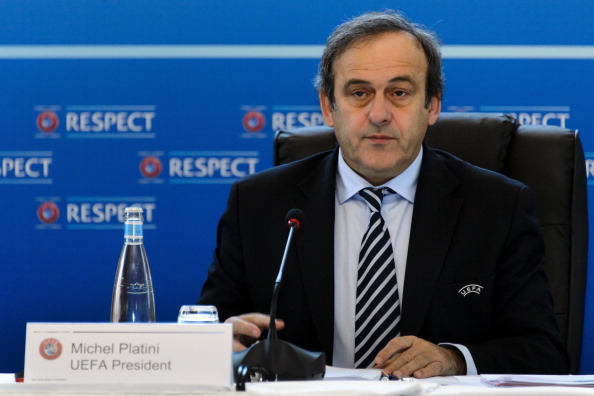By Andrew Warshaw
December 7 – UEFA President Michel Platini’s revolutionary plan to stage the 2020 European Championship finals in at least 12 cities across the entire Continent was officially approved by his Executive Committee today – though with few additional details.
Describing the landmark finals as “a Euro for Europe”, UEFA general secretary Gianni Infantino said the bidding process would start in March next year and the successful cities announced in the spring of 2014.
The English Football Association has already put forward Wembley as a possible venue for the final itself while Wales, Scotland and the Republic of Ireland have also expressed their interest to UEFA in staging matches.
Three of the last four European Championships have been staged jointly and the expansion of the tournament to 24 teams, starting with France in 2016, will mean even fewer nations will have the appropriate infrastructure to become hosts.
In recent weeks UEFA has been taking soundings from all 53 of its national federations before officially announcing the multi-venue finals at the end of today’s Executive Committee meeting in Lausanne.
“I cannot say now exactly how many cities or countries,” said Infantino.
“It’s a blank page but maybe a good mix so there is something for everyone.
“All I can say is that the format is changing.
“The response has been extremely positive from all the national associations.”
Well not quite all.

For clear political reasons, Turkey’s Executive Committee member, Senes Erzik, voted against a pan-European tournament.
Michel Platini’s (pictured above) radical plan to host Euro 2020 across the continent has been given the go-ahead to help celebrate the 60th anniversary of the tournament
Turkey lost out to France by one vote for 2016 and wanted to have another crack in 2020, only for Platini to make it clear that he would not support the Turks while Istanbul maintains its bid to stage the Olympic and Paralympics Games in the same summer.
But Infantino re-iterated that 2020 would be a one-off to celebrate the 60th anniversary of the event.
“Obviously the fact that the Euro moves to 24 teams bears additional burdens on the host nations, the requirements are becoming bigger and bigger,” he said.
“We saw in Poland and Ukraine how much had to be done in terms of infrastructure.
“[But] this is a decision only about 2020, it is not going forward for ever.”
The concrete format and exact number of cities involved will be decided by UEFA’s national Team Competitions Committee and tabled either next month or, more likely, in March.
Floating the idea back in June, Platini said that with so few individual nations able to stage an expanded tournament because of both its size and the financial demands, multiple venues could be used for the first time, with fans criss-crossing borders to support their teams.
“If you need to build airports or 10 stadiums in a country -this would be rather easy because it would be one stadium per host city,” he said at the time.
Last month, insidethegames reported exclusively that under the framework for 2020, in the group phase 12 venues would host six groups of four teams, each group assigned two cities fairly close to one another to assist both teams and supporters.
In subsequent rounds there will be eight matches in eight cities – comprising the top two from each group plus the third-placed teams – then four matches in the other four cities so that all 12 have been used effectively.

The semi-finals and final will take place in one country, although not necessarily one city.
Infantino declined to confirm this but did admit to one serious caveat.
With venues having to be selected well before the qualifying competition even starts, there is every possibility that cities could be staging matches in countries where the national team id not even make it through to the finals.
“This is certainly one of the questions,” admitted Infantino.
“It is possible one or more of the hosts will potentially not have qualified and this will have to be looked at.”
Giving home advantage to qualified hosts might also be considered, with non-hosts playing away.
“It would be difficult for the fans to understand if there is no match in a country that is hosting and is qualified,” said Infantino.
“It’s right to ask these kinds of questions.
“But the main point is to give more countries a chance to stage a part of the finals.”
Contact the writer of this story at zib.s1734936395emage1734936395htedi1734936395sni@w1734936395ahsra1734936395w.wer1734936395dna1734936395

